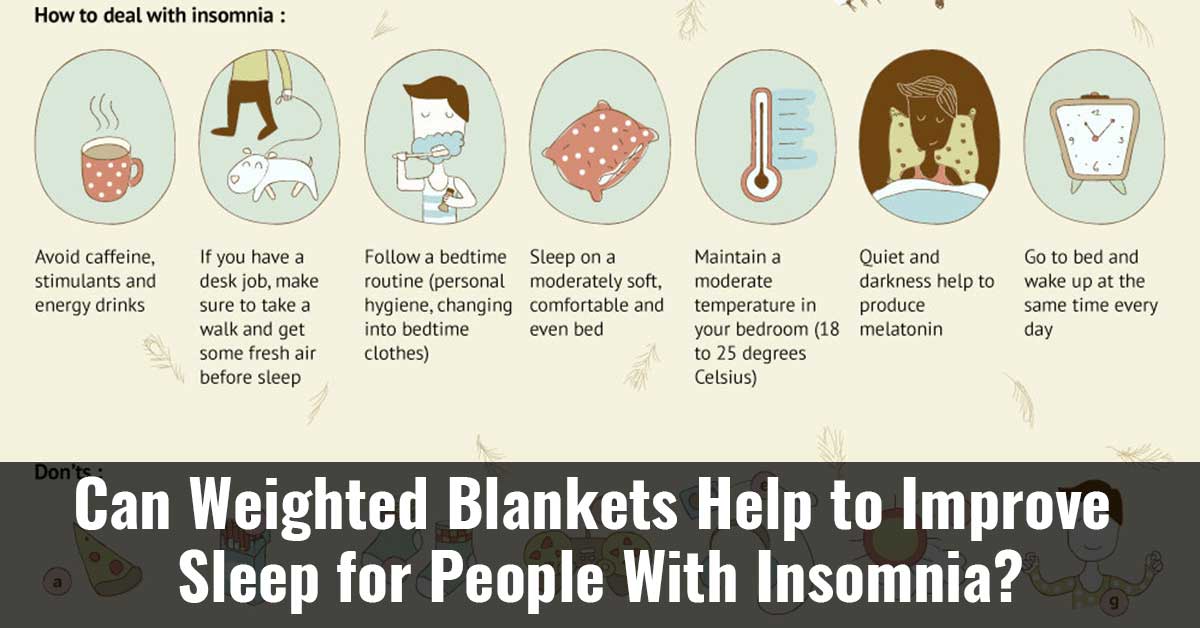According to a randomized, controlled study, weighted blankets are effective and safe for treating insomnia. The study discovered that individuals with insomnia who have psychiatric disorders experienced a reduction in the severity of insomnia, less daytime sleepiness, and improved sleep after they slept with a weighted chain blanket.1✅ JOURNAL REFERENCE
DOI: 10.5664/jcsm.8636
The study results reveal that individuals making use of the weighted blanket for 4 weeks reported a significant reduction in the severity of insomnia, a higher level of daytime activity, improved sleep maintenance, and a reduction in depression, fatigue, and anxiety symptoms. Individuals in the group using the weighted blanket were nearly 26 times more likely to have a reduction in 50% or more in severity of insomnia in comparison to the group not using the weighted blanket, and they were almost 20 times more likely in achieving insomnia remission. These results were seen throughout a follow-up period of 12 months.
A possible reason for the sleep-promoting and calming effect is the chain blanket’s application of pressure on various body points, stimulating the sensation of touch, comparable to massage and acupressure. There’s evidence that suggests that deep pressure stimulation can help increase parasympathetic arousal of the autonomic nervous system while reducing sympathetic arousal, which is regarded as the reason for the calming effect.
Researchers recruited 120 individuals with an average age of 40 years with a clinical insomnia diagnosis as well as another psychiatric disorder such as bipolar disorder, major depressive disorder, generalized anxiety disorder, or attention deficit hyperactivity disorder.
They slept at home for 4 weeks with either a weighted metal chain blanket or a non-weighted blanket. Individuals assigned to the group with the weighted blanket first tried out an 8-kilogram chain blanket at the clinic. It was too heavy for 10 of the individuals and it was replaced with a 6-kilogram blanket. Individuals in the non-weighted blanket group slept with a 1.5-kilogram plastic chain blanket. Changes in the severity of insomnia were evaluated making use of the Insomnia Severity Index. Sleep and daytime levels of activity were estimated making use of wrist actigraphy.
Almost 60% of those using a weighted blanket experienced a significant response with a 50% or more reduction in their Insomnia Severity Index score from the start of the study to the end of the 4 weeks, in comparison to 5.4% of the non-weighted blanket group. A score of 7 or less on the Insomnia Severity Index scale was regarded as remission, which was 42.2% in the group using the weighted blanket, in comparison to 3.6% in the non-weighted blanket group.
All individuals could choose to make use of the weighted blanket for a follow-up period of 12 months after the initial 4 weeks. Four different weighted blankets were tested, 2 chain blankets of 6kgs and 8kgs, and 2 ball blankets of 6.5kgs and 7kgs. They were permitted to select the blanket they preferred after the test, with most choosing a heavier blanket. A similar effect was experienced by those individuals who changed from the non-weighted blanket to a weighted blanket as individuals who initially made use of the weighted blanket. As much as 92% of individuals using a weighted blanket responded after 12 months, with 78% in remission.

Image Source – sputniknews



